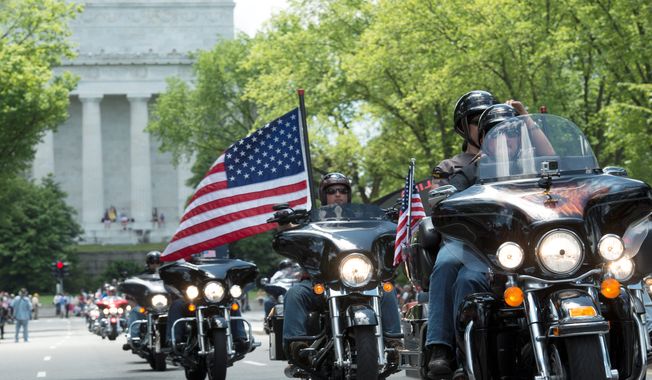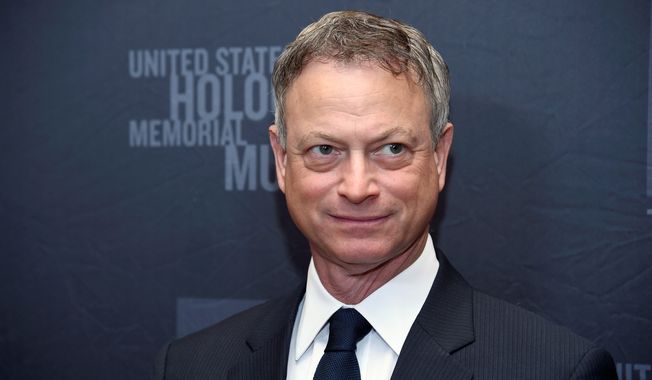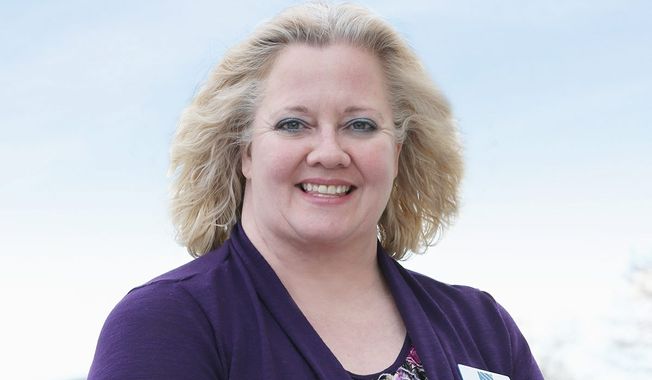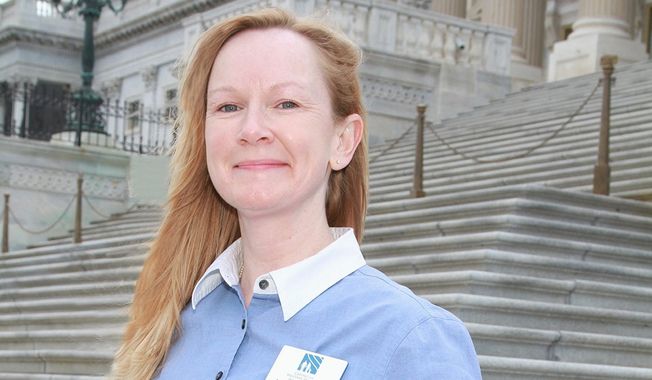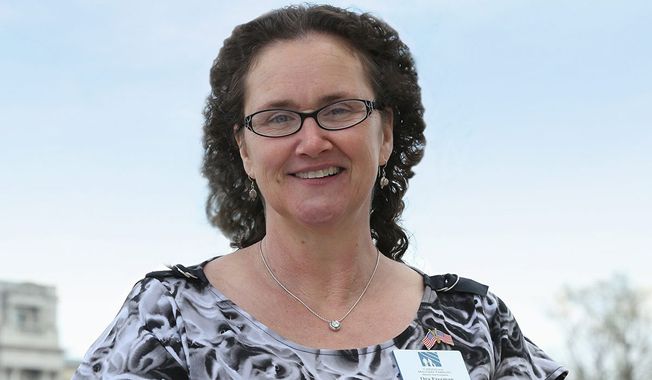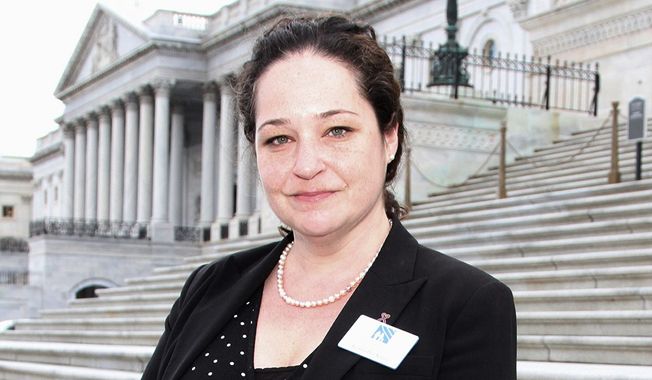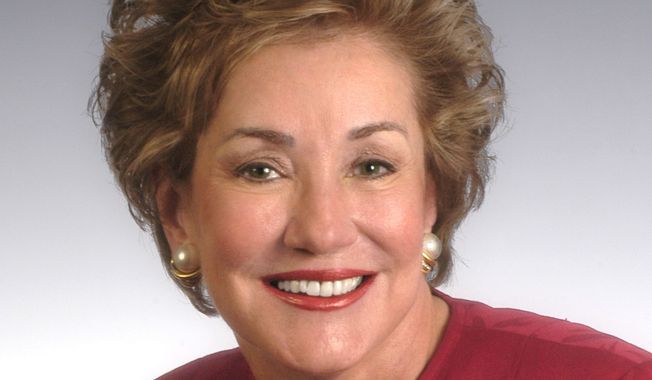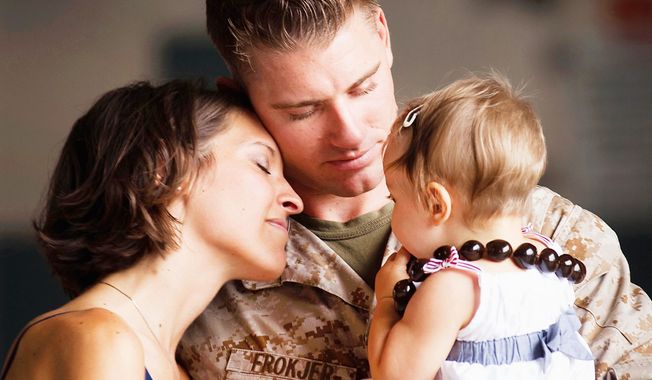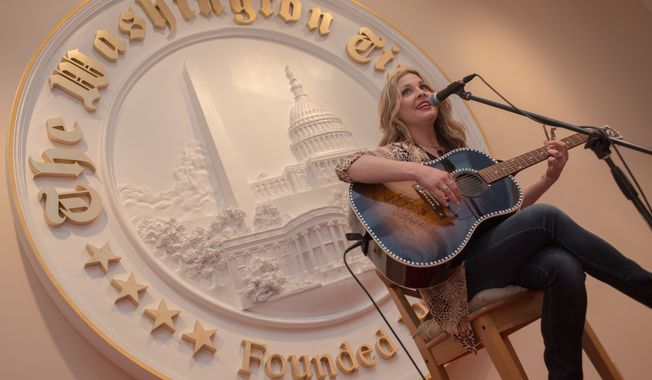A Month Long Salute to Wounded Warrior Caregivers
The Washington Times and the Elizabeth Dole Foundation pay tribute to Wounded Warrior Caregivers each day during the entire month of May.
Recent Stories
Wounded Warrior Caregiving Hero: Meet Debbie Sprague
The war came home with Chief Petty Officer Randy Sprague, but it lay buried deep in his psyche, releasing its damaging effects more than 30 years after his two combat tours in Vietnam.
Wounded Warrior Caregiving Hero: Meet Sami Anderson
This year, Sami Anderson and her husband Garrett celebrate the number 10 it represents both their tenth wedding anniversary and ten years since Garrett's "Alive Day," the day an IED detonated under his Humvee on a night mission in Baghdad. Only six months separated the two events.
Wounded Warrior Caregiving Hero: Meet Roxana Delgado
"How do you fall in love again?" Roxana Delgado wondered, once she realized the man she had fallen in love with was gone, taken away by the effects of a traumatic brain injury (TBI).
Wounded Warrior Caregiving Hero: Meet Patti Katter
Patti met her husband Ken in the early 1990s when he was transitioning from the Marine Corps to civilian life to serve as a police officer.
Wounded Warrior Caregiving Hero: Meet Liz Hunt
Liz Hunt's husband, Rob, was medically retired in 2014 after struggling with declining health, the result of severe chronic migraines, spinal damage, cognitive and memory issues, nerve damage, multiple traumatic brain injuries, as well as nightmares and PTSD. On his worst days, Rob needs emergency medical care to manage his pain. But that's not what the public sees when they look at him. They don't see the accumulation of physical and mental injuries that resulted from his 28 years of service. Rob's wounds are largely invisible to them, with the only outward clue being his use of a cane on days when his gate is unstable.
Wounded Warrior Caregiving Heroes: Meet Danny and Faun O'Neel
Caregiving is what Faun believes she was born to do. A mother herself, during a five-year period Faun was also a foster mother to twenty children, two of whom she adopted.
Wounded Warrior Caregiving Hero: Meet Kathleen Causey
In 2011, as Kathleen prepared to finish her college degree, her husband of eighteen months, Aaron Causey, was catastrophically injured while attempting to disarm an IED in Kandahar, Afghanistan.
Wounded Warrior Caregiving Hero: Meet Stephanie 'Steff' Smith
Self-medication, primarily with whiskey, was Tom Smith's remedy for the long list of ailments after his last deployment -- migraine headaches, nerve damage, spinal injuries, memory loss, hyper-vigilance, flashbacks and night terrors among them.
Wounded Warrior Caregiving Hero: Meet Elizabeth Rotenberry
Elizabeth Rotenberry always knew Chuck was her soul mate: ever since their first date in high school, his humor and love for family stole her heart.
Wounded Warrior Caregiving Hero: Meet Melissa Johnson
Melissa wants others to know that it takes great effort for military caregivers to be strong and resilient.
Wounded Warrior Caregiving Hero: Meet Precious Goodson
Precious Goodson, like many military caregivers, had to make a decision most people will never have to make — to retreat from the world they know and enter a totally different environment, leaving behind most everything familiar that brought comfort and balance to their lives.
Wounded Warrior Caregiving Hero: Meet Brian Vines
Brian Vines and his wife, Natalie, share a love story rooted in service to God, country and each other.
Wounded Warrior Caregiving Hero: Meet Virginia Peacock
Virginia Peacock was so very tired. The journey she began with her husband, David, a combat flight medic wounded in Afghanistan, went from caring for a shoulder injury to coping with the invisible, unpredictable and little understood wounds of PTSD and traumatic brain injury.
Wounded Warrior Caregiving Hero: Meet Emily Emmons
Emily Emmons met her husband, John, in 2007, nine months after he returned home from his second tour in Iraq.
Wounded Warrior Caregiving Hero: Meet Christine Schei
"I'm alive." If not for her single-minded devotion to her son, Eric, who in 2005 was shot through the head by a sniper during his second tour in Iraq,
Wounded Warrior Caregiving Hero: Meet Seneca Hart
Seneca Hart offers valuable advice gained from caregiving for her husband Steven — don't take small pleasures for granted, because in an instant everything can change.
Wounded Warrior Caregiving Hero: Meet Emery Popoloski
Emery and Charlie Popoloski began confronting Charlie's combat injuries while he was still on active duty.
Wounded Warrior Caregiving Hero: Meet Glenda Leary
When Josh Leary came back from his third deployment with the Air Force, his wife Glenda had no idea what she was dealing with.
Wounded Warrior Caregiving Hero: Meet Sue Kirk
It was worth all the stress, hurt and worry Sue Kirk had experienced since becoming her son Jim's caregiver when she received a warm hug from him and heard him say he wouldn't be here if it weren't for her.
Wounded Warrior Caregiving Hero: Meet Theresia Ditto
Michael Ditto's admission that he needed help was a welcome relief for his wife, Theresia. That made it easier for her to deal with some difficult choices she had to make, such as leaving college to support him.
Wounded Warrior Caregiving Hero: Meet Megan Stewart
"I am NOT Wonder Woman!" said Megan Stewart about herself as a military caregiver. "I can't do everything and trying to will leave me sick and tired."
Memorial Day Parade: A tradition of honor that stretches back 150 years
A single shot rang out in Washington at 9 a.m. on May 23, 1865. With that, 80,000 men of the Army of the Potomac, led by Gen. George Meade, marched from Capitol Hill toward the White House.
A salute to homefront heroes
Hats off to The Washington Times for using Military Appreciation Month to shine a light on the war on terror's unsung heroes -- military caregivers. These selfless individuals are the parents and siblings — but more often the spouses -- of soldiers, sailors, airmen and Marines recovering from the painful and horrific wounds of war.
What caregivers need: A plea from one hidden hero
There are 5.5 million Americans who have stepped up to become caregivers for wounded warriors, saving our nation $13.6 billion yearly in health care costs. These hidden heroes are simultaneously losing $5.9 billion in their own productivity by putting their careers, education and life as they knew it on hold when their loved one was injured or suffered from a medical illness due to serving in the military.
How America is rallying around the 'hidden heroes' who care for our wounded warriors
It's hard to believe it was just over a year ago that we released an eye-opening report from the RAND Corporation identifying the needs and gaps in support facing the "hidden heroes" of America's wars: the spouses, family members and friends who have dedicated their lives to caring for our wounded, ill and injured warriors. These brave women and men — just like the heroes they are caring for — are making a commitment of service that will stretch for decades. And yet our nation overlooked their critical role for far too long, leaving them to care for our wounded without the support they need or deserve.
Rolling Thunder rides with pride into D.C.
Rolling Thunder has much more to offer than motorcycles on Memorial Day: The nonprofit group provides year-round aid to veterans and their families to help pay for meals, mortgages and other bills to prevent homelessness.
For soldiers, man's best friend is a great healer
There was a noble tribute this week for hero humans and hero dogs just a block from the U.S. Capitol. The famous, powerful and political gathered to celebrate K9s for Warriors, a nonprofit that pairs rescue dogs with military veterans who must deal with post-traumatic stress and traumatic brain injury. Among the many who attended was retired USMC Captain Jason Haag and Axel, a splendid German Shepherd who was there for him in some very dark moments.
Wounded Warrior Caregiving Hero: Meet Sara Lease
One day at a time. Sara Lease focuses on those words and draws comfort from them, knowing many of her fellow military caregivers do the same.
Community Support at Home
A reporter recently asked a Maryland woman caring for her husband, a severely injured combat veteran, what kind of help she needed in the first months following her husband's return.
Gary Sinise entertains only for veterans after Hollywood
Gary Sinise began providing free performances and dinners for Vietnam veterans -- what he called "vets nights" -- in the late 1970s, long before he was a household name thanks to his Oscar-nominated portrayal of the man who loses his legs in the jungles of Vietnam.
Respite Care
Becoming a military or veteran caregiver is complicated, consuming, and emotionally and physically debilitating -- with no advance warning, no preparation, and often nowhere to turn for help.
Wounded Warrior Caregiving Hero: Meet Jennifer Jeffery
Jennifer Jeffery wants something she used to have and hopes to have again — a familiar and normal life.
Wounded Warrior Caregiving Hero: Meet Natalie Tarte
"I have learned the importance of patience and understanding," says Natalie Tarte, who has come to realize that as a caregiver she needs to acknowledge and empathize with her husband's feelings, even those she doesn't understand.
Mental and Physical Health
The role of a military or veteran caregiver can be all-consuming and stressful, leaving little time or energy for caregivers to tend to their own needs, often resulting in a deterioration of their physical and mental well-being.
Wounded Warrior Caregiving Hero: Meet Melissa Comeau
The tack Melissa's life has taken since her husband's injuries caused her to question her relationship with God.
Wounded Warrior Caregiving Hero: Meet Shannon Fatuesi Tuimaleali'ifano
Breathe pray repeat. Shannon Fatuesi Tuimaleali'ifano's simple faith-based motto guides her very complicated life as a caregiver to her husband, Sualauvi Malua Tuimaleali'ifano III.
Wounded Warrior Caregiving Hero: Meet Izabelle Gibson
On days when Izabelle Gibson can pull her husband Alexandre out of bed, she starts his shower, lays out his clothes and retrieves his medications from a safe place.
Wounded Warrior Caregiving Hero: Meet Pam Busenius
"He was not the man I married," said Pam Busenius of her husband, Joe, when he returned from deployment in 2005 and left the Army after 17 years.
Wounded Warrior Caregiving Hero: Meet Ivonne Thompson
It was a heart-wrenching fate that left Ivonne Thompson with a physically and mentally absent husband, and a son who has never talked with his dad, nor likely will.
Wounded Warrior Caregiving Hero: Meet Kimberly Dub
Most days in the Dub household, Kimberly Dub fills in empty spaces for her husband, Rob, who was diagnosed in 2010 with PTSD. ll.
Wounded Warrior Caregiving Hero: Meet Jessica Klein
When Jessica Klein's husband, Captain Flip Klein, was severely injured, resulting in a triple amputation, she was unwilling to just watch his health decline. She probed hard for answers and fought to reverse his downward slide against great odds.
Education and Training
Becoming a military or veteran caregiver is complicated, consuming, and emotionally and physically debilitating with no advance warning, no preparation, and often nowhere to turn for help. No one is ever prepared for the call that tells them their spouse, parent, sibling, son or daughter has suffered a life-altering physical or mental injury or illness. Too many of our military families face that reality.
Wounded Warrior Caregiving Hero: Meet Shelle Aberle
Shelle Aberle's husband, Michael, a recently retired Colonel, courageously served his country for over 35 years. Michael currently lives with a hereditary polycystic kidney disease and was placed on the national transplant list in 2012.
Caring for Our Nation's Hidden Heroes?
When a key group of leaders and advocates gathered in a conference room outside Washington, D.C. earlier this year to discuss the extraordinary struggles faced by the loved ones caring for our nation's wounded, ill and injured veterans, the conversation grew heated as the group worked to rank the largest threats to the physical and mental well-being of military caregivers. A consensus seemed elusive until a caregiver -- a woman who has served as the primary caregiver for her husband since he returned from Afghanistan with severe PTSD -- spoke over the crowd: "None of this matters if we're dead," she said, referring to her fellow caregivers. The room fell silent. Suddenly, the need for suicide prevention support was at the top of a list.
Community support at home
A reporter recently asked a Maryland woman caring for her husband, a severely injured combat veteran, what kind of help she needed in the first months following her husband's return. She responded, "If someone had offered to pick up the groceries for me, I would have cried out of relief. They wouldn't have had to pay for the groceries, just pick them up, so I could stay by my husband's side and take care of what he needed."
Wounded Warrior Caregiving Hero: Meet Jennifer Mackinday
When Jennifer's brother, Army Specialist James Smith, was wounded by an IED blast during combat operations in Mosul, Iraq, the list of impairments was long, and to most military caregivers, all too familiar: TBI, PTSD, elbow replacement, hearing loss, migraines and other complications.
Employment and Workplace Support
Caregiving is a time-intensive commitment, which can have a profound impact on military and veteran caregivers who are currently employed or need work. The two-year RAND study commissioned by the Elizabeth Dole Foundation found that many employed caregivers work in full-time positions because they are now the sole income provider for the family. Of those caregivers surveyed, many also found that the time devoted to caregiving required adjustments in their work schedules, often resulting in lost income and financial strain. This is particularly significant for employed post- 9/11 military caregivers, whose absenteeism is 3.5 days per month, much higher than the average for civilian and pre- 9/11 caregivers, which is one day per month. This puts a strain on both the employer and employee in terms of income, wages, lost productivity, and the consequences of unmet deadlines.
Financial and Legal Issues
Military and veteran caregivers who contributed to the Elizabeth Dole Foundation's RAND study acknowledge that long-term financial planning has been a complex and often overwhelming responsibility. The consequences of not planning ahead can be severe, but thinking through their futures forces caregivers to confront difficult and unknown possibilities.
Wounded Warrior Caregiving Hero: Meet Ora Freeman
Ora Freeman has served as the caregiver for her husband, Harold Freeman, Jr. (Butch), for more than ten years.
Wounded Warrior Caregiving Hero: Meet Ariana Del Negro
Ariana Del Negro is wife and caregiver to her husband, Char Gatlin, a retired Army Infantry Captain who was wounded in 2006 by a vehicle-borne IED while dismounted in Iraq.
A letter from Elizabeth Dole
This month, The Washington Times will open a window to the military and veteran caregiver community. Each day you will read stories of incredible resilience, love and determination.
Leading experts and advocates to collaborate on caregiving issues through Elizabeth Dole Foundation
The 2014 release of the RAND study commissioned by the Elizabeth Dole Foundation uncovered numerous gaps in support for America's 5.5 million military and veteran caregivers.
Country star Sunny Sweeney, Washington Times salute Wounded Warrior caregivers
It's often called the "nerd prom," the one time of the year when Washington elite, Hollywood celebrities and powerbrokers from around the country descend on the nation's capital to break bread and make light of an often tense and divisive political atmosphere, when even sharp barbs at the leader of the free world are in bounds.




























